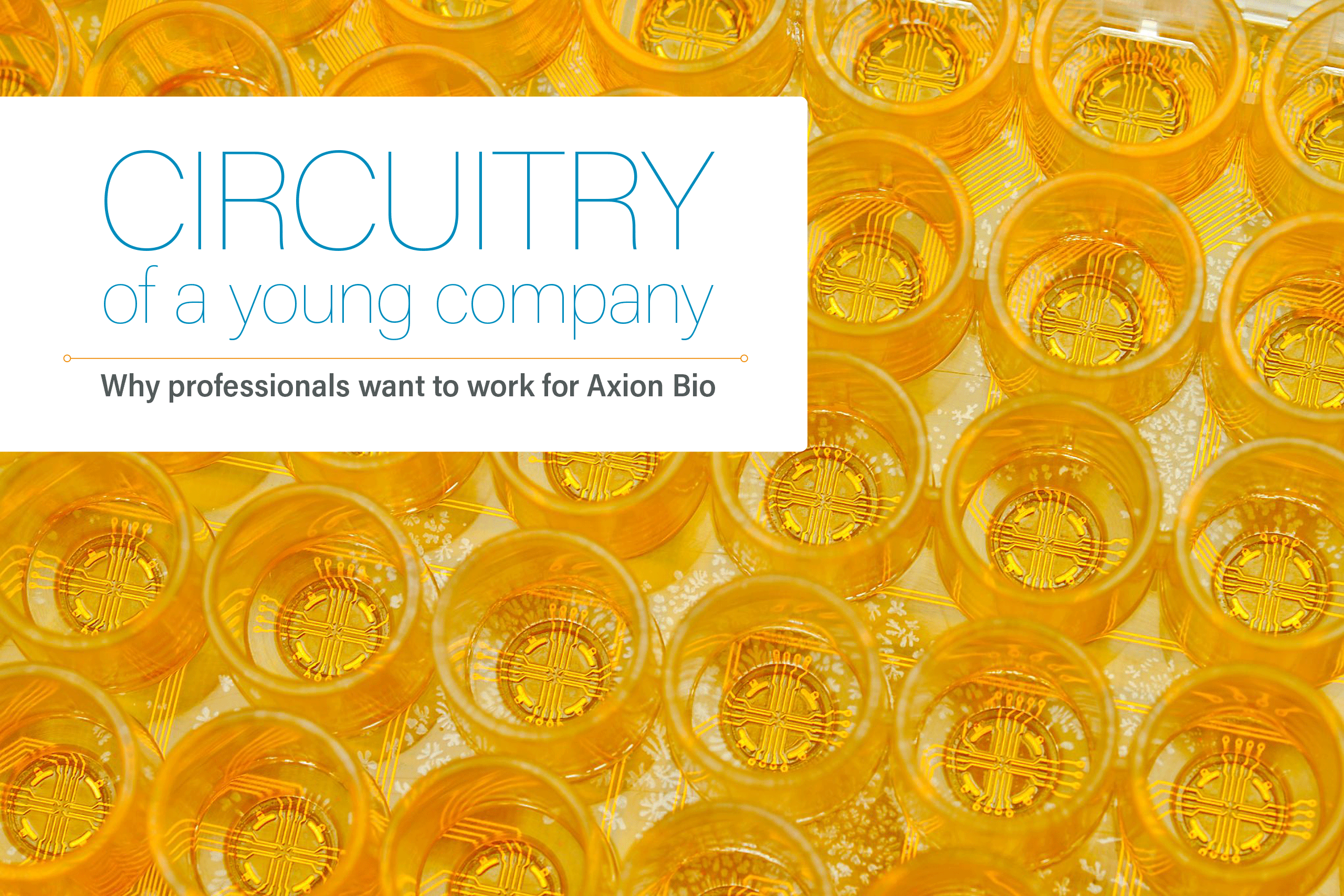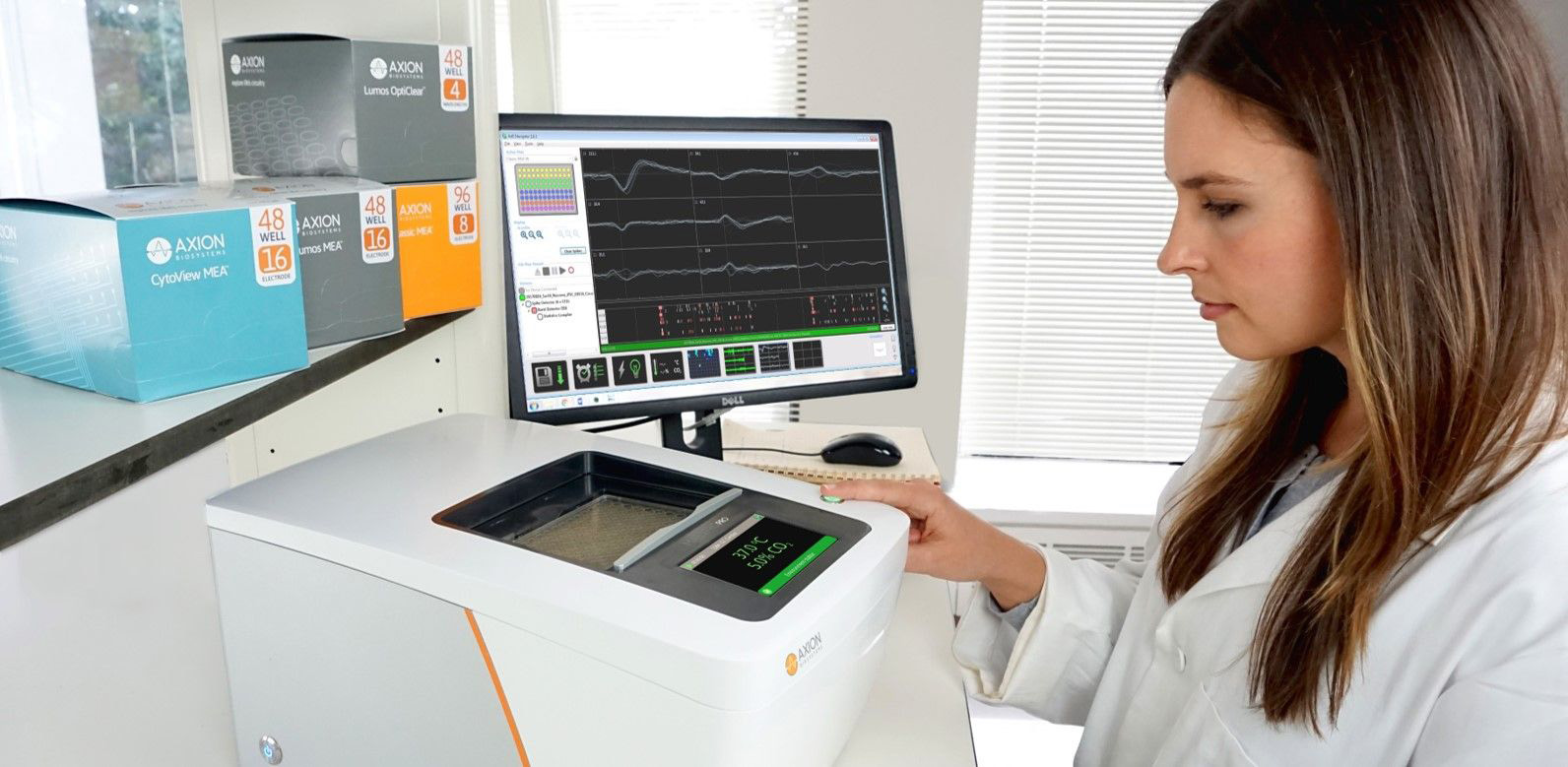

Launched out of Georgia Tech in 2008, Axion makes devices that accelerate drug discovery in labs. How they do this is something of a game-changer.
Devices called micro-electrode arrays (MEAs) connect human cells and tissue to electronic circuitry, so that scientists can study actual human activity — seizures, heartbeats and the like — in a petri dish. This allows them to evaluate how drugs affect humans without having to use real people.
Axion didn’t invent the MEA. But it made it much better.
They made it possible for scientists to evaluate the effects of many potential drugs at once, rather than one at a time, which was the convention. This added MEA capacity has the effect of speeding up what might work — and what won’t — in drug development.

Since then, Axion has added high-powered software to make the testing and analysis process simpler for scientists. It’s also rolled out the world’s first robotic interface to automate the preparation, maintenance and execution of assays for the MEA devices.
Axion’s innovation capacity means it can attract top talent as it grows. One example is Mike Clements.
Recruited from GE Healthcare in the United Kingdom, Clements joined Axion as a product manager in 2016.
“Back in 2014, I brought Axion’s system in to GE, as it was a really good way to test beating heart cells in a dish,” Clements says. “We were only their third installation at the time. I ended up writing several papers based on work done with Axion’s technology.”
A couple of years later, when contemplating a career move, Clements reached out to Axion CEO Tom O’Brien. “I said, ‘Let me know if you hear of anyone in the field who might need skills like mine,’” he said. “Tom said, ‘Why don’t you come talk to us?’”

Eighteen months after starting at Axion, Clements was promoted to scientific director. His role has since evolved further, helping to think through how the science community can best benefit from the Axion product line.
Would Clements have come to Georgia had it not been for the opportunity at Axion? Probably not.
“I had other offers from bigger companies in the U.S.,” he says. “But I thought Axion was an exciting company. There’s also a good ecosystem here. There are some really talented people coming out of Georgia Tech, and that’s important to us. I can’t talk enough about the strength and depth of people we have. We’re out-maneuvering companies far bigger than us, based on skill set.”
In much different capacities at Axion are two of the other 67 employees — Heather Hayes, an applications scientist, and LeBraun Ford, a software engineer.

Hayes was drawn by the opportunity to work in several different areas, helping to facilitate projects ranging from academic labs to Big Pharma.
“Three-fourths of my job is helping to make it easier for scientists to answer their questions with our platform,” she says. “We get cells, run tests and develop the right protocols and data analysis tools. Our software team then works to make it all super-easy for the end users.”
Ford is on that team — he says Axion looked like the perfect opportunity as he was wrapping up his computer science degree at Georgia State University.
“Much of my job is to help other team members move forward,” he says. “After just a few months here, I stated getting some pretty good responsibilities. No one can match what we have. Our technology does things other systems can’t do.”
